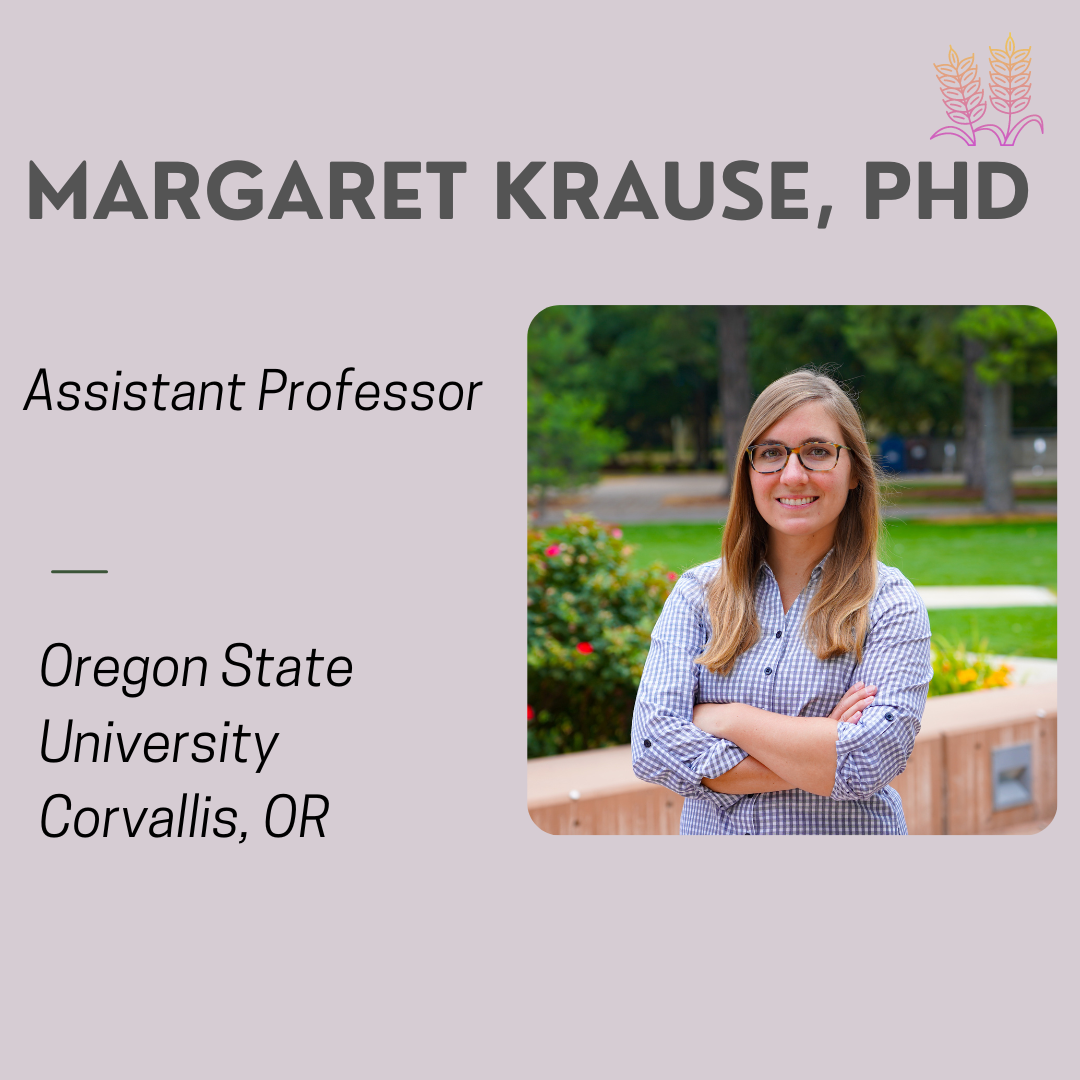Featured Researcher Bio - Margaret Krause 2024

Meet Margaret Krause, assistant professor and Warren Kronstad Wheat Research Chair in the Department of Crop and Soil Science at Oregon State University. Krause started at Oregon State University in November 2023. She is currently a new PI with the USWBSI succeeding Patrick Hayes who was working on doubled haploid production for FHB resistance breeding in barley.
Moving from the City to the Field
Krause grew up in the southwest suburbs of the Minneapolis-St. Paul metro area and went to the University of Minnesota. Within a few months of starting her freshman year, Krause began working in Jim Anderson’s lab, and quickly was hooked on the idea of becoming a small grains plant breeder. Krause received a B.S. degree in applied plant science and had the opportunity to conduct an undergraduate research project on leaf rust resistance under the guidance of Brian Steffenson. Her interactions with Anderson, Steffenson, and their graduate students and staff inspired her to seek a career in plant breeding.
Having not grown up with an agriculture background, the first time she was exposed to the idea of an agricultural career was when she heard the story of University of Minnesota alumnus Norman Borlaug’s contributions to crop improvement during the 1950s and 60s. This motivated her to want to go to the International Maize and Wheat Improvement Center in Mexico (CIMMYT), where Borlaug conducted his work. Upon completing her undergraduate degree, Krause moved to Cornell University where she pursued her Ph.D. in plant breeding under the direction of Michael Gore and Mark Sorrells. And as a graduate student and post-doctoral researcher, Krause was able to spend a number of years conducting research with the Global Wheat Program at CIMMYT.
Following the completion of her National Science Foundation Postdoctoral Fellowship, Krause became an assistant professor and small grains breeder in the Department of Plants, Soils, and Climate at Utah State University, before taking her current role at Oregon State University.
Embracing Her New Role and USWBSI Connections
Krause is now in a key role for wheat and barley breeding and genetics at Oregon State and is leading the barley doubled haploid lab, which is funded by the USWBSI. The lab aids USWBSI barley breeders in expediting the process to develop scab-resistant cultivars. She joins an active team with crosses to introgress scab into the breeding germplasm already underway. Krause looks forward to working with the team to release scab-resistant wheat varieties in the coming years.
Being new to the community, she values the connections USWBSI makes available, especially during the annual National Fusarium Head Blight Forum, and appreciates that it provides the biggest convergence of wheat and barley breeders in one place. As an early-career breeder herself, Krause likes how the NFHB Forum provides an approachable setting to seek advice, brainstorm research ideas, organize collaborative trials, and coordinate germplasm exchange.
Making Progress by Asking Questions
While still seeking advice herself, Krause’s advice to graduate students and other early career professionals is to ask questions! “Looking back, I wish I had gotten over my fear of asking questions earlier on in my education,” said Krause. She now realizes that being open to asking questions can lead to quicker progress. She advises graduate students to remember that one’s advisor does not expect you to know the answer to everything and to keep in mind that your advisor doesn’t know the answer to everything either.
For more information about Dr. Margaret Krause's research, visit her faculty webpage.
To learn more about others in the FHB community, check out all the previous USWBSI Featured Researchers.
